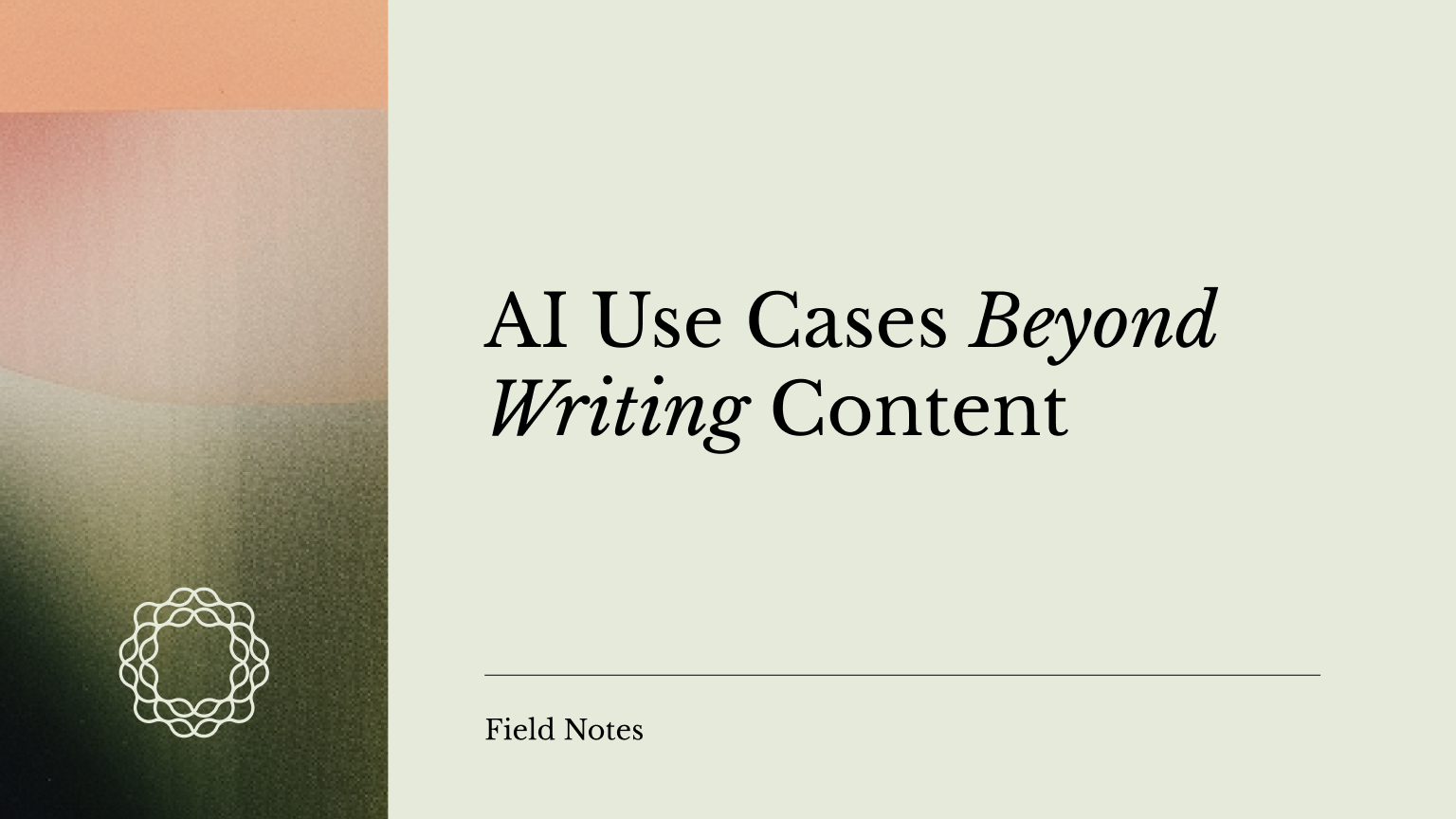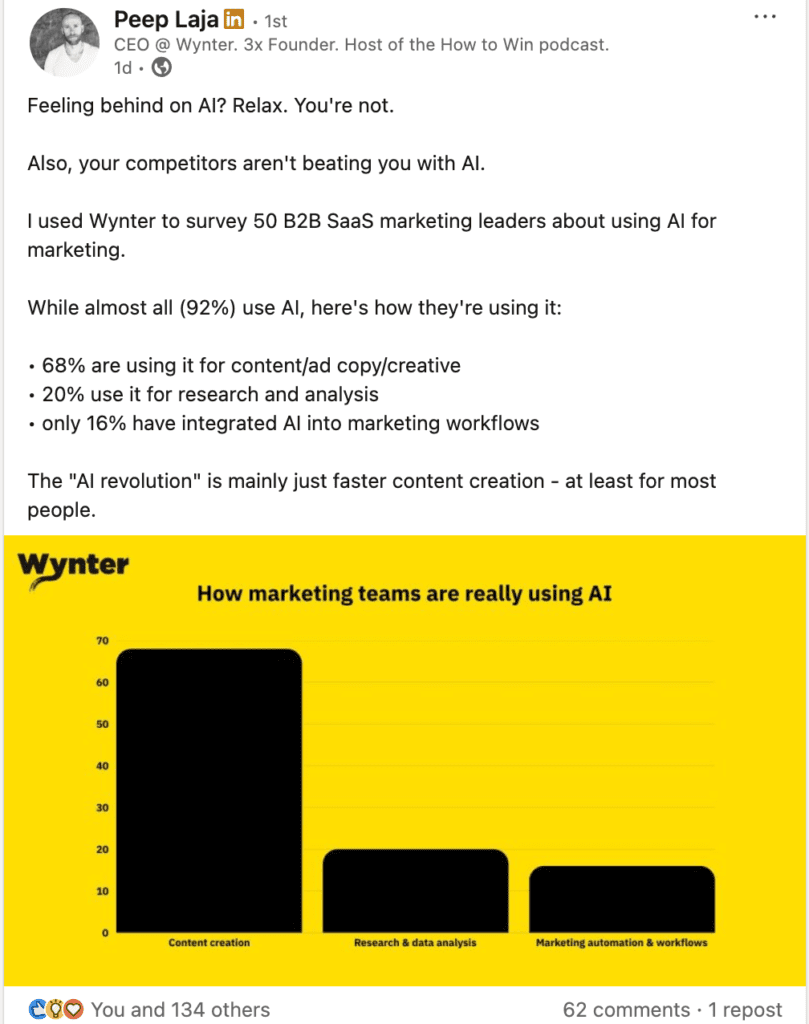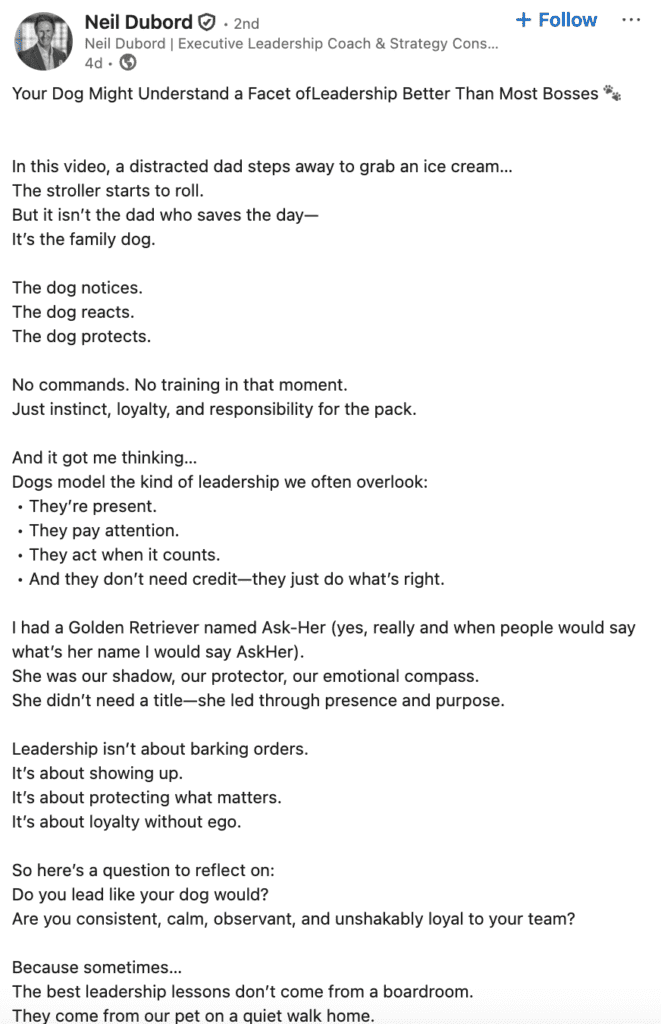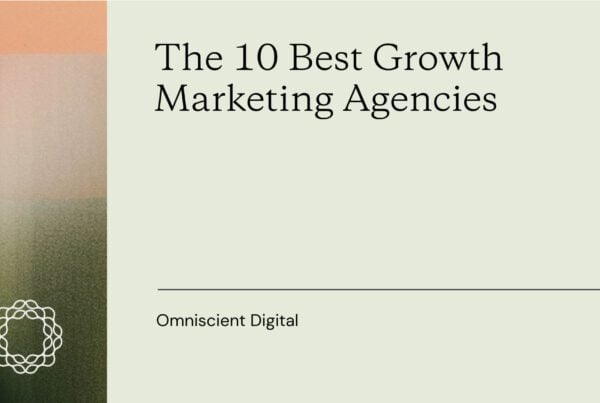
When we first began working with Jasper in 2021, no one really knew what to do with generative AI.
The messaging in the space centered around solving the “blank page” problem for writers. Get to a first draft more quickly.
Common problem. I face it all the time.
I had to confront it just now, as I had procrastinated writing this newsletter for at least three days. But if deadlines do anything well, they loom. And a looming deadline is a far more effective impetus for creation than AI, at least so far.
Our engagement with Jasper was not working positioning and messaging. We were there to drive user acquisition and revenue through organic search, which of course is a natural extension of positioning, personas, messaging, and the product itself.
And you can clearly see, based on our case study, that we got the job done. We drove an incremental $4M+ ARR directly attributed to the blog.
Most of this content centered around bottom-of-the-funnel categorical keywords, many of which were nascent (think “AI content generators”), and some of which were established categories we could angle our way into (think “copywriting software”).
Then another pattern of topics came in the form of pain points or jobs-to-be-done. Things people ostensibly could use Jasper for, but weren’t currently. Things that were commonplace, like writing Instagram captions, LinkedIn bios, and blog post introductions.
The rest of the AI content tools popping up around then were doing similar things, which makes sense: the first conversation in generative AI was mostly around efficiency, speed, and replacing basic forms of writing. Unimaginative, but things that people do on a daily or weekly basis.
While some early voices saw the potential in AI as a “sparring partner” or a way to tune up copy and make it clearer, most of the thought was, “how can I use this to spend less time writing [blog posts, copy, etc.], so I can spend more time on other stuff?”
And unfortunately, in much of the marketing space, that conversation hasn’t changed all that much.

“Microwaved Dinner” Content
I stumbled on a Fast Company piece recently that I enjoyed.
Mark Wilson wrote a piece titled: “If you use AI to write me that note, don’t expect me to read it.”
“Reading simply takes longer than visual processing. It inherently asks more of an audience. Presenting a friend or colleague with a note an AI wrote is like inviting them over for dinner and microwaving a Stouffer’s. An AI post on LinkedIn is bringing that same microwaved dinner to a potluck. You should be embarrassed in either case! Not by your lack of skill or practice in putting together words, but your lack of respect for not even trying.”
Strong take, and honestly, kind of right.
There’s something disheartening particularly about one-to-one communications, or even job application responses, where you just feel the lack of effort as almost insulting. You can sort of widen the aperture, and the effects become more nuanced, but I think we can agree that if your spouse automated their texts to you, it wouldn’t be cool.
What, then, of LinkedIn? A platform ostensibly designed to drive connections, but realistically, one that serves audience building purposes for creators, influencers, and vendors like myself trying to sell you SEO services.
I got this comment on a recent post where I talked about using AI simply to replace your writing being boring:

I think this is a cynical take, though honestly, probably directionally true for the majority of people using the platform.
Still, I can’t help but think of second and third order consequences, where, if everyone thinks like this and acts on it, then what is the platform value of LinkedIn? If everyone is optimizing first for visibility, with no regard for consumptive value, substance, or novelty, then what happens to the attention on the platform?
Herein we leave ethics and enter pragmatic utility: I think if you’re trying to stand out, pumping out AI generated posts with little original thought or editorial, or worse, doing the same with automated comments, is not serving your purpose for the long term.
I will say, however – and I’m not being snarky or ironic – that AI-generated content, at the extreme, is genuinely hilarious and almost artistic. Especially when it is crafted to mimic the common LinkedIn format.
Like, I genuinely cannot tell whether this is earnest or not, and I sort of love that:

(There’s a video of a dog saving a baby stroller from rolling away that he is referencing)
The Composition:Comprehension Seesaw
One thing I’ve found bizarre is how hard it is to comprehend AI slop.
I’m hiring right now, which means I have to go through thousands of applications.
We include a “passcode” in the job description (front and center), so I can filter out at least half because they didn’t include the passcode. Okay, detail-orientation checkpoint passed.
Now, however, with AI readily available, you have to swim through a sea of em-dashes (hold your pitchforks, more on that in a second) and strangely formal language (“In this ever evolving industry…”)
Ignoring the fact that these AI generated answers to our application questions, in many cases, don’t even answer the question accurately, they are simply hard for me to read.
Which is…strange.
I spent a few semesters as an English major (eventually graduating from the Journalism school at Wisconsin), scored a 34 on the English component of the ACT (pro tip: always find a way to brag about your high school days when possible), and read books like The Power Broker for fun.
So why, why, why?! Why is it so difficult for me to read something so simple?
Ty Magnin noticed the same thing:
“When I read AI-slop, it actually makes me feel dumb. Somewhere in the first few paragraphs I feel like I’ve lost focus. I try and lock in deeper. But then slowly I realize—it’s not me, it’s just shit content.”
It’s not the use of AI that’s the issue. I use it. Used it for this newsletter. It’s the lack of care. The abdication of voice (I do hope, especially if you’ve met me in person, that you can still hear my voice in these). The laziness of generating a placeholder and calling it communication.
There’s an externalized cost, if you’re counting, meaning the time saved is passed on to the consumer. You’re saving 5 minutes. I’m spending 10 trying to understand your microwave-dinner email.
If you have a voice, please don’t give it up
How would you describe yourself?
Not everyone is a writer. But a subject matter expert who wants to get their knowledge out into the world? I love you, and I think you should use AI to do so.
I want your knowledge. The world wants your knowledge.
If you start with a seed of substance, and then you use AI to format that into a readable, legible, well-formatted post, that is a wonderful use case.
Again, I’ve written about my hyper-optimistic take that AI may just unleash a flood of dormant knowledge and intelligence locked inside the brains of people who lack the time or skill to write well (or the money to hire a ghost writer or editor).
But one thing that has made me a little sad is the feeling of “loss” when I see people whose voices I love, cherish, and devour start to use hollow AI generated copy devoid of any of their voice or personality.
I won’t mention specific names, but there are a handful of people now – some of whom have written actual, full, amazing print books – who have seemingly delegated their online content to an AI workflow.
Which is fine.
Again, I use AI quite heavily to get me to post on LinkedIn more often. I pull source material from these essays, our case studies, internal projects and sharing, and from our podcast clips. So I’m creating a lot of content and putting a lot of work out, I just need some process efficiency to get these into LinkedIn format (I still don’t know how to write a hook).
But personally, I like that I have developed a voice, though some may not like it, but some have written back to me telling me they love that they can “hear my voice” in my writing. I think that’s cool. I don’t want us to lose that idiosyncracy in our content.
The world doesn’t need another “What a great post, Charlie. I also think the tie-in between microwaved meals and artificial intelligence is intriguing. What do you think about takeout, though?” It would benefit from an actual reaction.
I know some of this is innocent, beginners using tools the way they know how. And I do hope that we advance to both a higher technical and pragmatic level, where we’re asking, “what are we doing this for, anyway?” A dead internet where your bot interacts with mine is probably not ideal (though maybe it forces us to read print and go outdoors more).
Cooler Uses of AI (That Actually Add Value)
I asked the team what they do love about AI right now. Here’s what they said:
- Usman: Writes scripts and builds workflows way faster now. Also uses LLMs as project buddies to synthesize patterns from large info dumps (like ClientGPTs built from interviews and reviews). Learn technical skills (excel formulas, python, etc.) quickly. Also, building AirOps workflows to run initial keyword research runs against client artifacts like goals, industry and product, and topic guardrails, de-duplicating and clustering keywords with similar SERPs.
- Nia: Uses AI for client research and hiring prep. Helps assess highly technical accounts before onboarding even starts. Also testing prompts to add varying depths of detail to content, prompting against client artifacts like industry specs, product features, tone and voice guides, personas, and qualitative data collected in SME and stakeholder interviews.
- Catherine: Automates larger parts of content briefs — especially the tedious parts like SERP analysis (table stakes information, search intent, strengths and weaknesses of existing competition). Built workflows to automate portions of BOFU research, including accurate product information and evals, voice and style evaluations, and formatting for search optimization.
- Me: I’m in love with AI CRMs like Day.ai. First off, the notetaking itself is awesome. I have no short term memory, and I can’t take notes and listen at the same time, so this is my second brain. I upload transcripts to a CustomGPT for sales (with positioning, messaging, ICP, and pricing / service menu documents for our agency) and it helps generate proposals and even first pass strategies for search. It pings me in Slack when a contract needs to be sent or an email needs a response. It writes follow-up emails based on meeting context with summaries and action items. It’s like having a smart ops team inside my inbox.
- Me: I also love vibe coding mini-apps, calculators, tools, etc.
- Me: I also love analyzing and synthesizing unstructured data, particularly for research purposes. I use NotebookLM to query dozens of interviews with marketing leaders conducted over the past few months, triangulate patterns and pain points, and speed up the initial qualitative research phase. This puts me in the driver’s seat when it comes to exposition and completing what will be, I think, a remarkable content asset rooted in real data from real marketing leaders in the field.
I’ll write way more about all of these use cases (and more) in the future.
One thing I highly suggest, if you can crack it, is to create a shared Slack channel or even a regular meeting where team members share the coolest use cases. We democratize innovation, and productize what is repeatable, composable, or universal.
When you begin to look at AI as an augmentation function, amplifying the intelligence, skills, creativity of an individual, or perhaps even as an innovation function, doing things you previously could not do before (due to time, resource, or technical constraints), it becomes a superpower, not an annoyance.
Basically, I don’t have an AI agent answering emails for me. Not because I’m too technically dim to build out, let alone the fact that there are several low cost plug-and-play solutions available already.
I’m aware that answering emails takes me time, and there are even higher leverage ways to use that time.
But I just put myself in the other shoes for a moment; if I emailed a friend, prospect, co-worker, VC, or spouse, how would I feel if I received a generic, AI-generated response? Not great.
Beyond ethics, I simply believe that answering them with my own thoughts is more effective, as well (and if you respond to these newsletters, know that it is me answering them).
Want more insights like this? Subscribe to our Field Notes.


